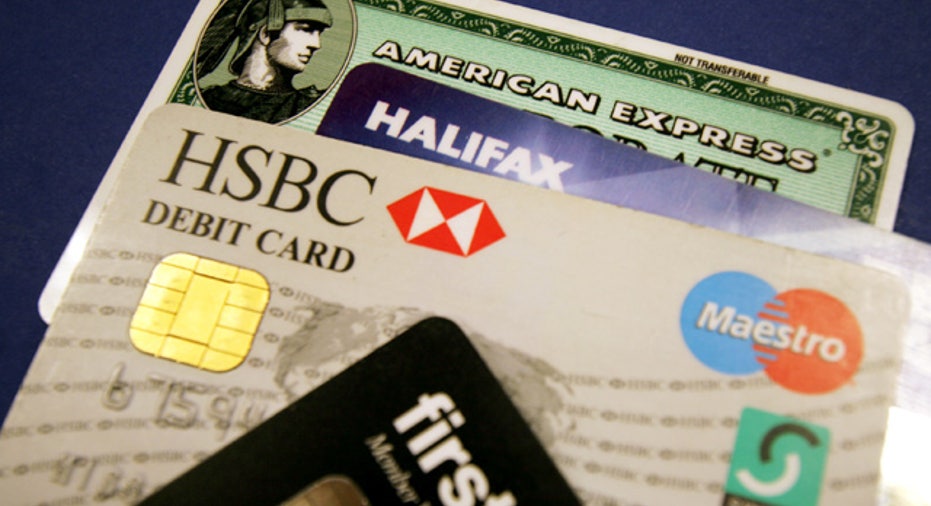Points or Cash? How to Choose the Best Rewards

What determines the best credit card available? Is it the interest rate? An impressive array of merchandise and travel rewards? The lure of cash back?
A large part of what determines the best credit card is you: your needs, your habits, and your credit history. These all can determine which type of card you should have, and which is the best credit card offer for you within that category. Looking at some examples of how different types of credit cards stack up will illustrate how you can compare the best credit cards.
Cash is king (usually)
Credit card rewards programs offer you the opportunity to earn airline miles, merchandise, services, or cash back. Which is best? In most cases, take the cash.
CardRatings.com looked at several prominent credit card brands with 5-star credit cards. With one exception, the reward credit cards examined offered no advantage for redeeming points directly for goods and services rather than cash.
There were even cases where the value of merchandise or services offered was less than the cash back available for the same number of points, and generally there are restrictions on what merchandise or services are available. So, getting cash back generally will get you at least as much value, with maximum flexibility.
What are rewards points worth?
The standard here is that every dollar you spend is typically worth one cent in terms of rewards, though there are some points of differentiation which will be discussed below. The exception mentioned above is the Capital One Venture Rewards Card, which accrues TWO points for every dollar spent.
Since these points are redeemable for one cent each in travel credit, this rewards card essentially gives you twice the industry standard in rewards value, but there is a catch. Unlike the other rewards cards examined for this study, the Capital One Venture Rewards Card has an annual fee.
This annual fee is $59. That means you'd have to charge at least $5,900 a year on this card - and use the travel points earned as a result - for the value of the extra rewards to equal the annual fee.
What's the best rewards credit card for me?
One thing that makes it so hard to compare the best credit card offers is that there are several moving parts. Here are some of the basics you should understand about rewards programs.
Points. These are what credit card companies use to keep score on how much you've earned in rewards. As noted above, each point is generally worth a penny right now, but this is subject to change at any time - which is why credit card companies keep score in points rather than dollars accrued. Note that travel rewards cards often express points as "miles," but these are not typically redeemable for an equivalent number of air miles. In this context, "miles" generally means the same as "points."
Bonus points. Often as an introductory offer, or for certain categories of purchases, you can earn bonus points - sometimes up to 5 additional points for each dollar spent. The more short-lived or restrictive these special offers are, the less attention you should pay to them, but ongoing offers in categories where you often spend money could make a card especially attractive to you.
Limitations. Limitations come in several forms - the time for which an offer is available, what types of purchases accrue points, the minimum amount you have to spend before you start accruing points, the maximum number of points you can accrue, etc. These limitations are important, so don't just look at the headline features of an offer.
Interest rate. There is a trade-off between interest rate and rewards. Typically, non-rewards cards have lower interest rates than rewards cards. However, if you always pay off all of your balance every month, the interest rate is a moot point. So, the rule of thumb here is that the less of a balance you tend to carry on your credit card, the more attention you should pay to rewards programs. The higher the balance you are likely to carry, the more you should focus on interest rates when choosing a card.
Compare the best credit cards by category
Citing some examples of outstanding credit cards in their respective categories should give you a feel for what to look for when choosing a rewards credit card:
Cash back. Cash back programs generally return 1% of your money once any introductory offer has ended, so your best bet is to look for cards that offer bonus rewards in spending categories you will use. Good examples include the Chase Freedom Visa, which currently pays 5% rewards on purchases in quarterly categories such as gas or groceries. Another top pick is the Blue Cash Everyday Card from American Express, which currently offers 0% interest on balance transfers for 18 months.
Rewards (points or miles). Among rewards cards, the aforementioned Capital One Venture Rewards Card stands out for having double the standard rate of point accrual. It's a good deal only if you can spend and redeem enough to offset the annual fee. If you don't think you'll spend that much, then the Chase Sapphire Card and the Discover Miles Card are good rewards cards with no annual fees and relatively low interest rates.
What to watch out for
Rewards cards can give you an incentive to spend more than you might otherwise so you get more points, more miles, or more cash back. To get the greatest value, compare rewards credit cards to find the one that best fits your spending habits and your budget. That way, you earn the greatest amount of rewards on money you would have spent anyway. And to avoid spending your rewards (and more) on credit card interest, never carry a balance.
The original article can be found at CardRatings.com:Points or cash? How to choose the best rewards



















